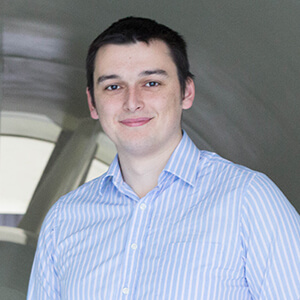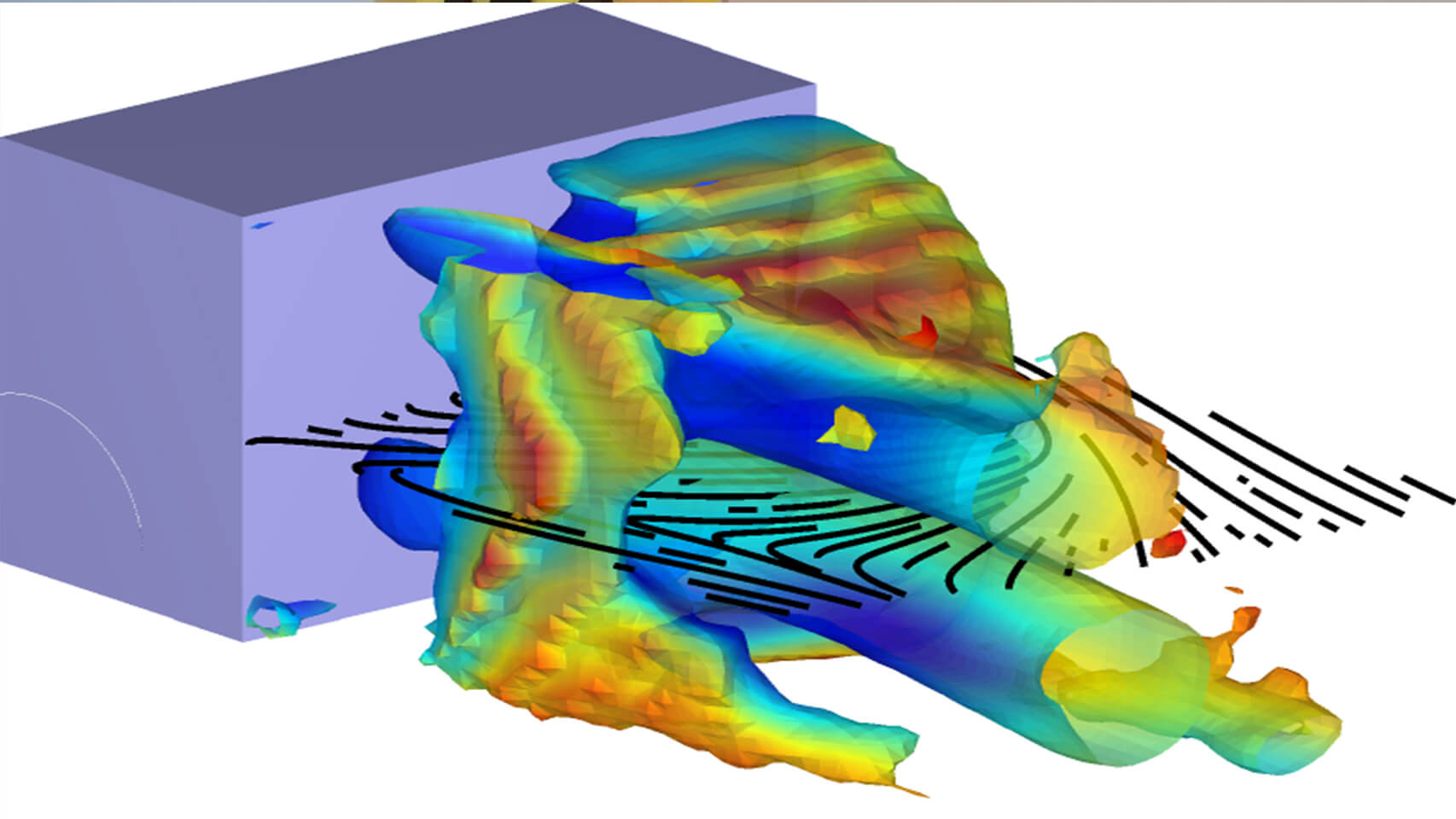It was an easy decision to progress to a PhD at Loughborough after my undergraduate degree. I wasn’t cut out for the standard graduate programmes, knowing that my skills lay elsewhere, and I wasn’t able to find a position that suited me.
I also knew that if I was to do a PhD, then my supervisor was the only one that I was willing to do one with. I knew the supervisor well enough to be confident I would make it through the PhD, and that there was a group surrounding my research to work collaboratively in this area. Without either of these I wouldn’t have taken the research position.
My PhD project was about Novel Methods of Base Pressure Drag Reduction (making SUVs have square rear edges, without behaving like they have square rear edges). This ultimately ended up looking at adaptive systems tested in a quasi-steady way.
For me, the best thing about studying a PhD at Loughborough was studying with the group of people. There were eight (I think) people studying similar things using the same equipment. There was a fantastic pool of knowledge there to work through problems and issues that we faced. Having a pool of supervisors to run ideas through with was also a significant benefit.
Aside from the people, the large wind tunnel facility was primarily for PhD students and their projects, with a good amount of equipment to use and test with. It was incredibly hands-on, with no dedicated support (apart from each other) for the more scientific side of the projects, meaning that we each learnt a huge amount about the systems and sub-systems. Whilst this did distract from analysis of the aerodynamics, it was hugely beneficial to each of us, making each of us much better engineers and aerodynamicists.
All three wind tunnels were available to me for use in my project, although I only sought to use the large wind tunnel as all our equipment was designed around it.
The most interesting thing for me during my undergraduate degree was the trip to MIRA for a week of practical work. It was great to be able to apply the work in the lectures to the real-world data that we had defined the tests for. It was also fantastic to be able to use a full-scale wind tunnel to get a real appreciation for what small changes to an automotive shape can do to the resulting forces. Ultimately it was my experience in the wind tunnel at MIRA that made me decide I wanted to go into experimental aerodynamics, with a PhD the clearest way to do that from the automotive engineering course.
My advice for anyone considering a PhD would be, most importantly, choose a supervisor who has a good track record with PhD students passing their thesis defence, as this is a good indicator of your success. Secondly, try to choose an institution that has a reasonably sized group in your respective field. A PhD is difficult anyway, so it would have been a lot more difficult without a supportive and knowledgeable supervisor and group.

I received plenty of support from the department. Naturally with experiments and equipment, things go wrong. This was in the form of equipment failing, bits falling off models, things going through the tunnel etc., which is all part of performing experiments! There was never a shortage of technicians, experimental officers, or lecturers to call upon to help fix or work out bits and pieces.
The office staff also played a huge role in support when it came to organising purchasing, deliveries, conferences and the like. This was especially so from our supervisor’s PA who often went above and beyond what was required of her to make sure that everything ran smoothly outside of the research environment.

I’m now working at Mercedes AMG F1 as an Experimental Specialist in the Aerodynamics Department in Brackley, Northamptonshire. I'm responsible for maintaining, developing and implementing systems in Wind Tunnel 2 at Brackley. Eventually I will be somewhat involved in all areas of aerodynamic testing as the group develops.
In five years’ time, I hope to still be at Mercedes, working my way towards a Senior Experimental Specialist position.
My undergraduate set me up for an opportunity with the PhD, which ultimately got me the position I am in now. I gained a lot of practical and experimental skills during my final year project, but it was ultimately the skills during my PhD which got me where I am now. Presenting my work continuously (during my PhD), to industrial sponsors, supervisors, lecturers and at conferences has also helped my public speaking ability tremendously.